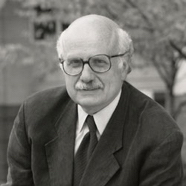Progress On Electoral Count Act Reform In Congress; SCOTUS To Consider “Independent State Legislature Theory”
Fred Wertheimer’s Weekly Note | September 29, 2022
 Two critical issues that go to the heart of the integrity of our elections will play out this fall – one in Congress and one in the Supreme Court.
Two critical issues that go to the heart of the integrity of our elections will play out this fall – one in Congress and one in the Supreme Court.
Electoral Count Act Reform Moves Forward In Congress
In the past two weeks, Congress has made major progress in repairing flaws in 19th-century laws governing the presidential election process, including a dangerous loophole that former President Donald Trump and his allies sought to exploit as part of their plot to overturn the 2020 election.
Even though Trump’s effort to steal the presidency was unsuccessful, it is a stark warning of what could happen in future presidential elections if these antiquated laws are not effectively repaired.
On Tuesday, the Senate Rules Committee reported out the bipartisan Electoral Count Reform Act by a vote of 14-to-1.
The bill has the support of both Senate Majority Leader Chuck Schumer (D-NY) and Senate Republican Leader Mitch McConnell (R-KY) and has enough bipartisan support to break a filibuster.
The House passed a similar version of the reform, sponsored by two House January 6th Committee leaders, Representatives Zoe Lofgren (D-CA) and Liz Cheney (R-WY).
The House and Senate reform bills both eliminate the “failed choice” provision, a loophole in the 19th-century laws that would allow a state legislature to substitute its own slate of presidential electors for the electors chosen by the voters. (This was the path Trump and his allies attempted to go down in Georgia and other states, before being stopped by top DOJ officials who refused to sign on to their plan.)
The bills also take other steps to protect the presidency from being stolen by a losing candidate.
Enacting the legislation will be high on the agenda when Congress returns following the midterms.
Supreme Court To Consider “Independent State Legislature Theory”
The Supreme Court is set to consider whether the so-called “independent state legislature theory” blocks state courts from deciding whether laws passed by state legislatures meet state constitutional standards.
If state legislatures are given the power to enact election and other state laws without regard to whether they comply with state constitutions, hyper-partisan legislatures will be free to write election laws that improperly benefit the party in power.
The so-called “independent state legislature theory” theory will be considered in the case Moore v. Harper. The theory has been viewed as a radical fringe idea and, if adopted by the Supreme Court, would overturn literally centuries of a broad understanding that state courts do have jurisdiction to review election laws adopted by state legislatures.
According to an amicus brief submitted by the Conference of Chief Justices: “[S]ince the Civil War, state courts have routinely reviewed the lawfulness of state election laws, including those governing federal elections, for consistency with state constitutions.”
The Supreme Court recognized the right of state courts to review state election laws as recently as three years ago in Rucho v. Common Cause (2019).
In deciding that federal courts should not review state redistricting plans for impermissible partisan gerrymandering, Chief Justice Roberts in that majority opinion, also signed by Justices Thomas, Alito, Gorsuch, and Kavanaugh, noted that the majority was recognizing the right of state courts to review state election laws as part of justifying the Court’s refusal to have federal courts consider a state redistricting map.
It would be the height of hypocrisy for the Supreme Court to turn around and take away that right now.
The public approval of the Supreme Court has sunk to a historic new low, as a result of what can only be viewed as radical decisions that ignore past precedents and appear to be partisan in nature.
Justice Elena Kagan said earlier this month about the Court’s history: “The very worst moments have been times when judges have even essentially reflected one party’s or one ideology’s set of views in their legal decisions.”
A decision by a majority of Justices to adopt the fringe “independent state legislature theory” would open the door to state legislatures passing laws that would rig elections without any check by state courts and would let loose hyper-partisan Republican legislatures to further polarize the country.
________________________
Fred’s Weekly Note appears each Thursday in Wertheimer’s Political Report, a Democracy 21 newsletter. Read this week’s newsletter here. And, subscribe for free here and receive your copy each week via email.